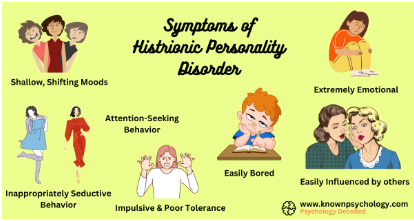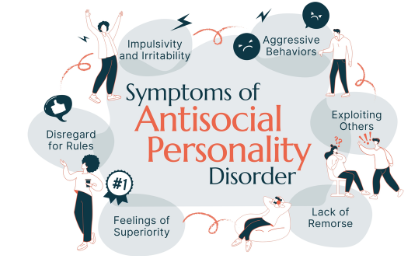Neuroscience: Mental Health Disorders
1/12
Earn XP
Description and Tags
- slides 269-282; identify mental health disorders
Name | Mastery | Learn | Test | Matching | Spaced |
|---|
No study sessions yet.
13 Terms
What is anxiety disorder?
Persistent feeling of fear and dread that interferes with normal functioning
Overreacting in certain situations
Inability to control the response to situations
What are examples of anxiety disorders?
Generalized anxiety disorder
Panic disorder
Social anxiety disorder
Phobias
What are mood disorders? (affective disorders)
The most common mood disorders are depression, bipolar disorder, and cyclothymic disorder.
Persistent feelings of sadness
Periods of feeling overly happy
Fluctuations from extreme happiness to extreme sadness
What are psychotic disorders?
Distorted awareness and thinking
Schizophrenia is an example of a psychotic disorder
What are the two most common symptoms of psychotic disorders?
Hallucinations (the experience of images or sounds that are not real, such as hearing voices)
Delusions (false fixed beliefs that the ill person accepts as true, despite evidence to the contrary)
What are eating disorders?
Involve extreme emotions, attitudes, and behaviors involving weight and food.
Anorexia nervosa, bulimia nervosa, and binge eating disorder are the most common eating disorders.
What are impulse control & addiction disorders?
Inability to resist urges, or impulses, to perform acts that could be harmful to themselves or others.
Examples of impulse control disorders are pyromania (starting fires), kleptomania (stealing), and compulsive gambling.
Alcohol and drugs are common objects of addictions
What are personality disorders?
Extreme and inflexible personality traits that are distressing to the person and cause problems in work, school, or social relationships.
The person's patterns of thinking and behavior significantly differ from the expectations of society
What are some examples of personality disorders?
Antisocial personality disorder
Obsessive-compulsive personality disorder
Histrionic personality disorder
Schizoid personality disorder
Paranoid personality disorder
What is Histrionic Personality Disorder?

What is antisocial personality disorder?

What is obsessive-compulsive disorder? (OCD)
Constant thoughts or fears that cause them to perform certain rituals or routines.
The disturbing thoughts are called obsessions, and the rituals are called compulsions.
An example is a person with an unreasonable fear of germs who constantly washes their hands.
What is post-traumatic stress disorder? (PTSD)
develops following a traumatic and/or terrifying event, such as a sexual or physical assault, the unexpected death of a loved one, or a natural disaster.
People with PTSD often have lasting and frightening thoughts and memories of the event, and tend to be emotionally numb